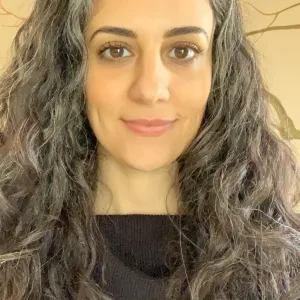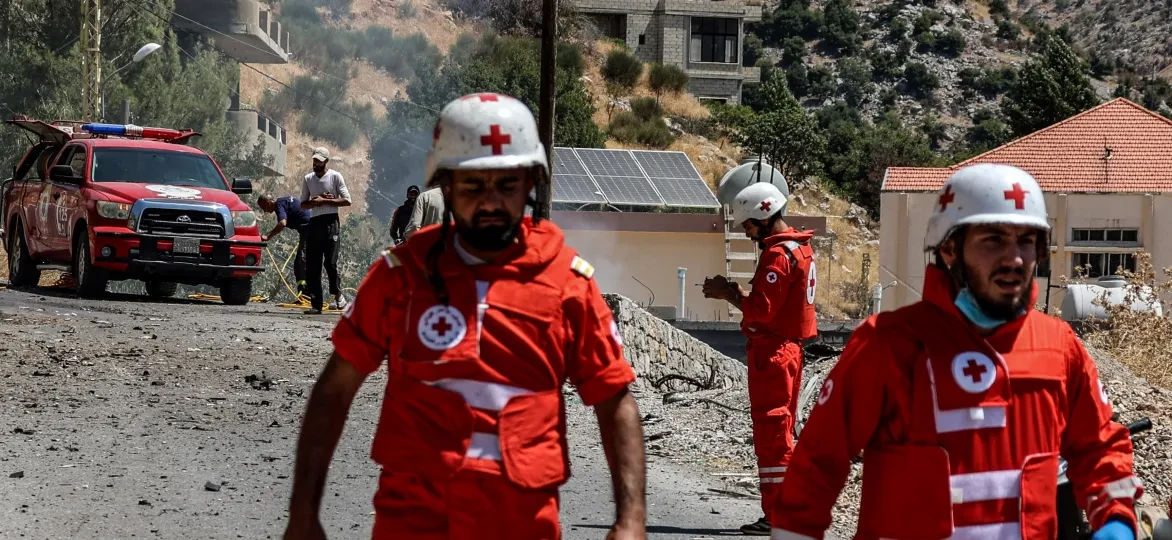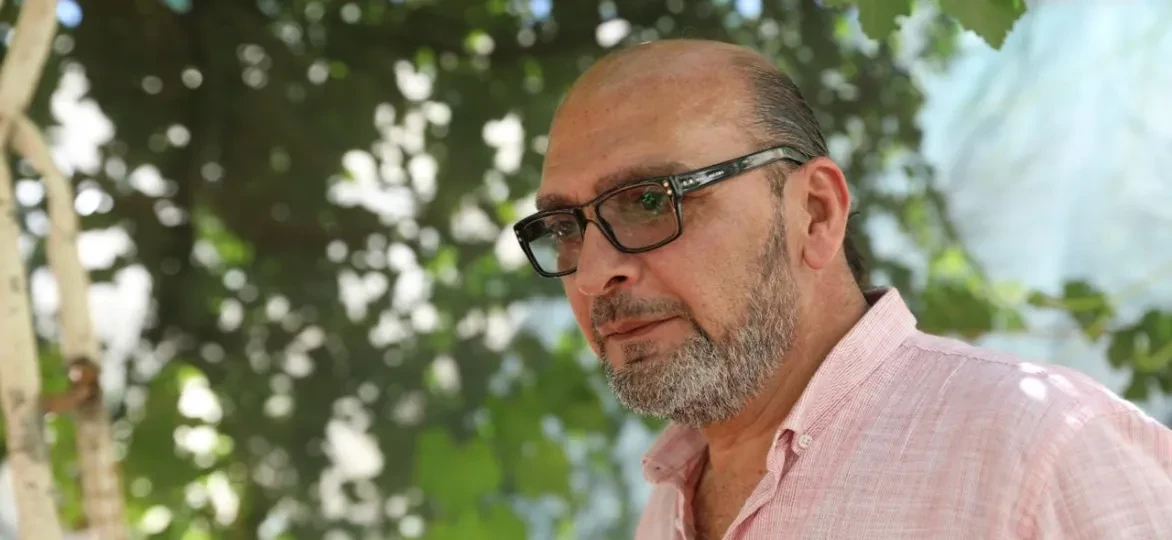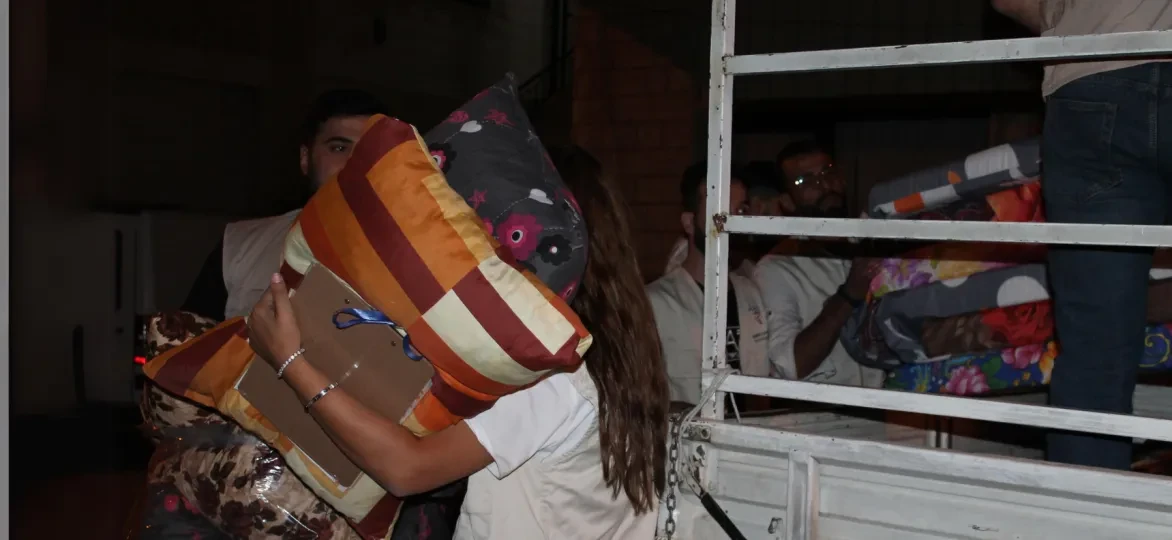“The message from Western leaders is clear: Arab lives don't matter”
In recent weeks, more than 1.2 million people in Lebanon have fled the Israeli war violence. In large-scale and systematic Israeli attacks on civilian infrastructure, the Israeli army has killed hundreds of civilians. All the warning lights are on red that Lebanon is in danger of becoming a new Gaza. 11.11.11 spoke to some of the voices on the ground.
October 25 2024
7 minutes
Nadine (36) is the granddaughter of two Lebanese who fled to Canada during the Lebanese civil war, where she grew up. After her studies, she returned to Lebanon and worked for various human rights organizations. Until recently, she lived in the Lebanese capital Beirut.
Nadine, how have you experienced the past few weeks?
“I’m slowly getting better, fortunately. Now that I was able to flee the country, I can breathe again and feel less tense and anxious. But these were very intense weeks. After the Israeli beeper attacks on September 17 and 18, a kind of collective fear psychosis descended on Lebanon. Everyone was afraid that their mobile phone would explode. Fear does strange things to a person.”
“And then they had to start bombing. The psychological terror of Israeli drones and “sonic booms” (Israeli fighter planes that break through the sound barrier to intimidate the population, ed.) is unimaginable, you are not at ease for a moment. That is, just like in Gaza, part of the Israeli psychological warfare. They terrorize the ordinary civilian population. 24/7. From my apartment in Aley I could see and hear the bombing of the southern suburbs of Beirut. Believe me, you won’t sleep a wink. And by now also bombing outside so-called “Hezbollah neighborhoods”, Israel is sending a clear signal: nothing and no one is safe in Lebanon, nowhere.”
Just like in Gaza, Israel terrorizes the population. 24/7. That is part of the Israeli psychological warfare.
Luckily you managed to escape the country?
“Yes, but that was also far from easy. During the war in 2006, Israel bombed Beirut airport, so everyone expects them to do it again now. So it was a feat to get a ticket. Most international airlines cancelled their flights from Beirut, only Middle East Airlines did not let us down. The night before we left, Israel also bombed buildings right next to the highway to the airport, closing the road.”
“But even after I managed to get on a plane, it’s still very difficult to accept my new reality, outside of Lebanon. My partner, and many of my friends, are still in Lebanon. You keep looking at your phone anxiously, waiting for bad news.”
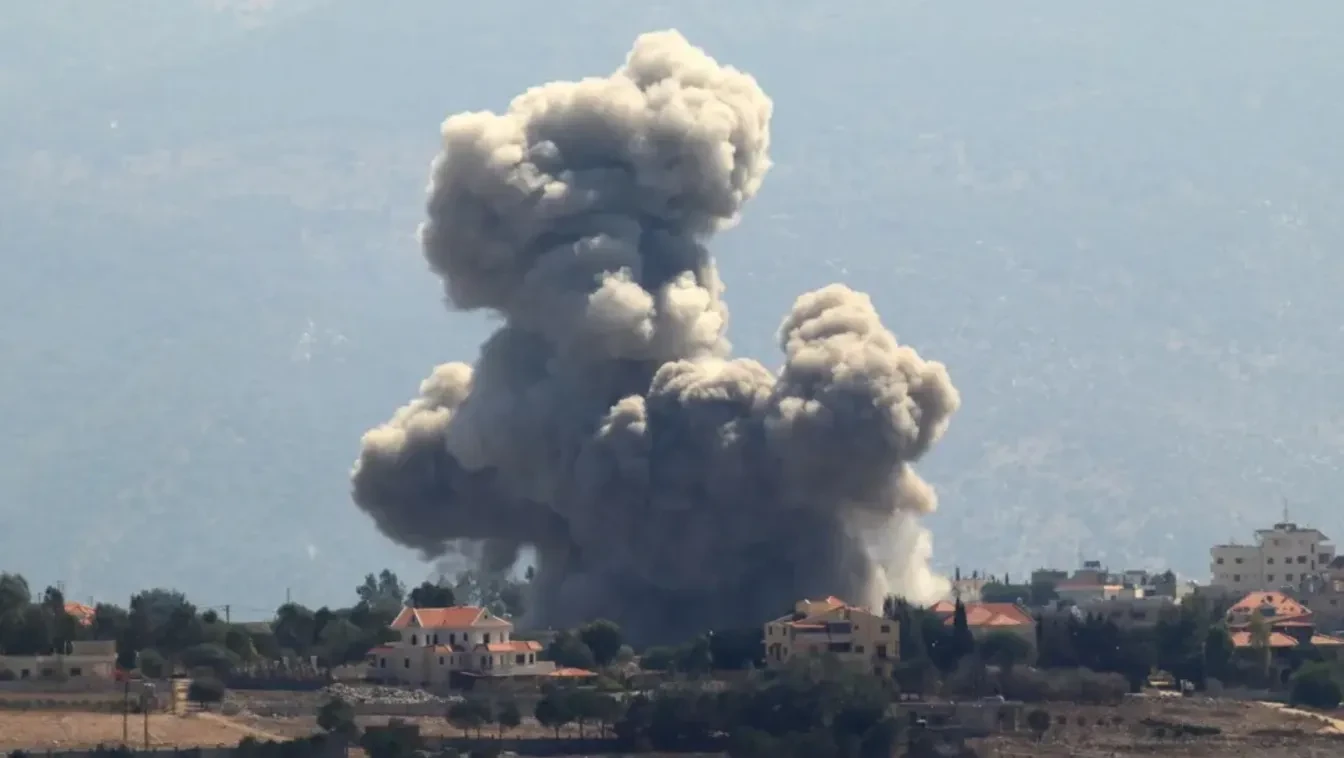
Lebanon was already in a very difficult situation before the current war. How much adversity can a country and its people endure?
“It’s too much, plain and simple. A failed political revolution in 2019, followed by the biggest economic and financial crisis this country has ever known. The Covid-19 pandemic since 2020. The explosion in the Port of Beirut in August 2020, one of the largest non-nuclear explosions in history. And in the meantime we are hosting more than 1,5 million Syrian refugees, which is creating a lot of tensions with Lebanese host communities. And now this.”
“Everyone keeps talking about how ‘resilient’ Lebanese are. Stop saying that. We are not superhumans with unlimited resilience. We are not okay, we are exhausted. No one can handle so much misery at once. People are still deeply traumatized by the port explosion. Every Israeli airstrike is reliving August 4, 2020. I couldn’t handle it anymore. I broke down, I was crying all day. You keep thinking about how people are under the rubble, how people’s whole future was wiped out in one go.”
“The whole situation has a paralyzing impact. Most people spend most of their time shutting down from their daily reality, pretending that nothing is happening. They throw themselves into their work, but of course it is quite challenging to concentrate and not be anxiously following the news all the time. And then there is the ghost of the 2006 war. You keep thinking: they are going to bomb the airport again, they are going to bomb the airport, … Without the airport, Lebanon is completely cut off from the outside world, that is not a small detail for us.”
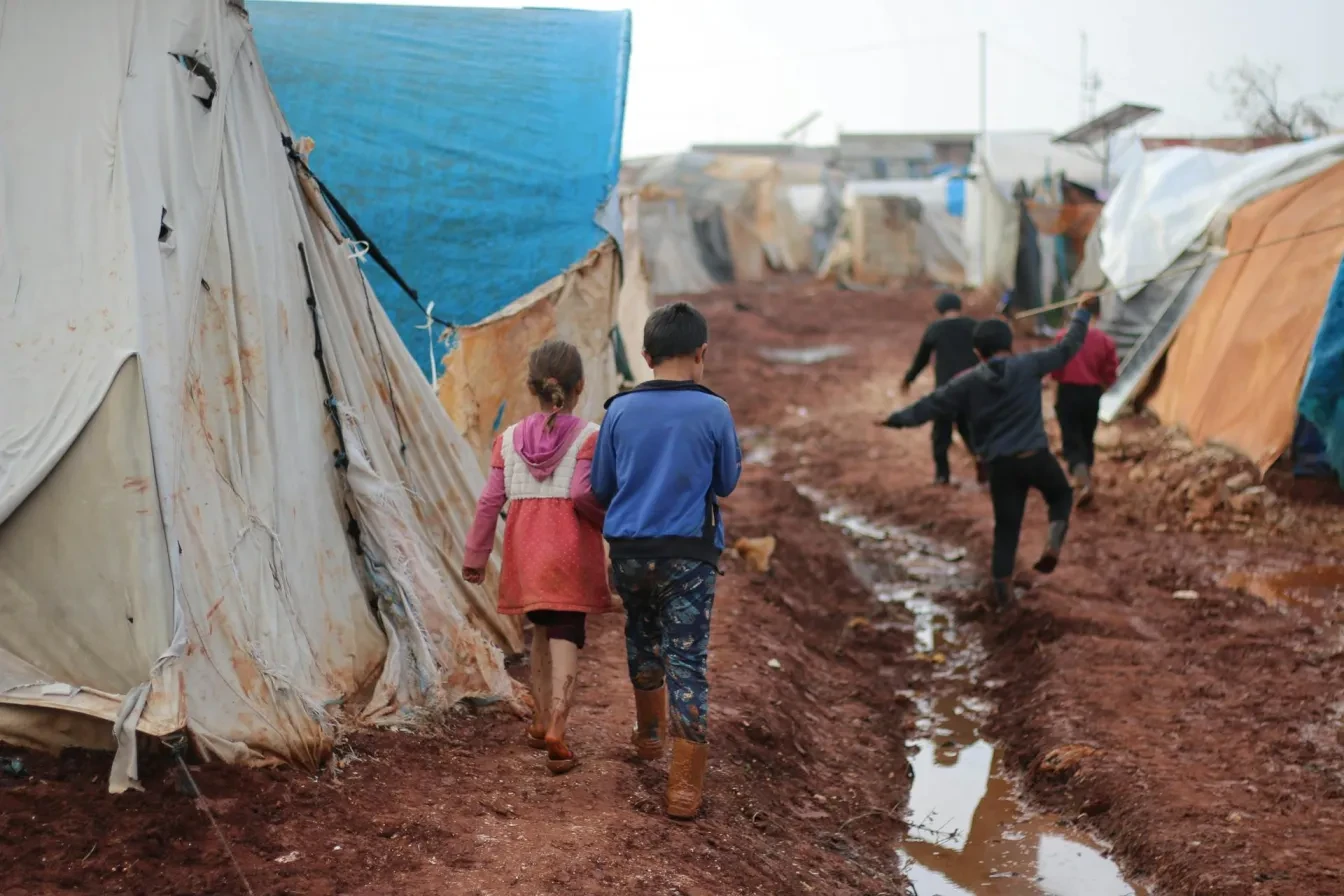
Meanwhile, human rights organizations warn that Lebanon could become a new Gaza. How likely do you think that is?
“Everything points in that direction. The labeling of entire areas as ‘Hezbollah.’ The forced evacuation orders to forcibly relocate hundreds of thousands of people. The systematic targeting of civilian targets and medical infrastructure. The genocidal rhetoric of Netanyahu, who says that ‘every house in Lebanon has a Hezbollah rocket in the kitchen,’ or of one of his ministers who openly says that Lebanon must be ‘destroyed,’ … And a few days ago you had another Israeli minister, Bezalel Smotrich, who openly dreams of a “Greater Israel” in large parts of the region.”
“When Gaza started, no one thought it would last this long and reach this scale. No one expected Israel to be given such a free hand, that there would be absolutely no limit to their impunity. Israel has a maximalist and genocidal agenda, and as long as no one stops them, they will not stop. Not even in Lebanon.
The message is clear: Arab lives are inferior. Our lives do not matter to the West. This is pure racism and a double standard of the highest order.
How do you view the West's response?
“If Iran were to take out an Israeli military commander and blow up an entire apartment block in Tel Aviv, world leaders would be falling over themselves to condemn it. But when Israel does the exact same thing to us Arabs, all we hear from the West is excuses and justifications. The message is clear: Arab lives are inferior. Our lives do not matter to the West. That is pure racism and a double standard of the highest order.
“Ask any Lebanese, any Arab, what the most painful realization of the past year is, and they will tell you how they discovered that our lives do not matter to the West. The extent to which we have been dehumanized in recent months makes it impossible to function in this world in the same way ever again. Even if the war were to stop tomorrow, it would take an incredibly long time to rebuild even a modicum of trust with the West. Do not underestimate the amount of resentment and anger that is building up among ordinary citizens in the Arab world.”
“Even if you disregard Arab human lives for a moment, this is also a geopolitical blunder of the highest order. Or do people in Western capitals really think that there will be a single government in the so-called 'Global South' that will listen the next time the West comes to lecture them on human rights? Our leaders will have a good laugh, the West has lost all legitimacy to preach about international law. Which will only make the world a more dangerous place. It is also quite ironic that it is precisely the far-right anti-migration voices in Europe that are standing behind Israel as one, a country that is creating an incredible number of refugees through its actions.”
Israeli Prime Minister Netanyahu recently promised the international community a “New Middle East,” a new order in the region. How realistic do you think that is?
“Anyone with even a passing knowledge of our region knows that this will not work. The idea that you can impose a new order in the Middle East by force of arms has been tried many times. And failed, time and time again. Take the Israeli invasion of Lebanon in 1982, after which they continued to occupy Lebanese territory - this is what led to the creation of Hezbollah. Many are also convinced that it was the US occupation of Iraq in 2003 that led to the creation of the Islamic State (IS). Even in the unlikely event that Israel were to succeed in destroying Hezbollah now, any form of occupation of Lebanon will only lead to the rise of another resistance group.”
“In any context of illegal occupation, systematic subjugation and oppression of a population, there will be resistance. When violence is imposed on a people, the response will be more violence. Whether it is Hezbollah 2.0, 10.0 or 100.0. And of course, it is never okay to attack civilians in the process. But armed resistance against an occupying power is perfectly legitimate and permissible under international law. We hear all the time about Israel’s right to self-defense, but never about the right of an occupied population to resist their occupier.”


